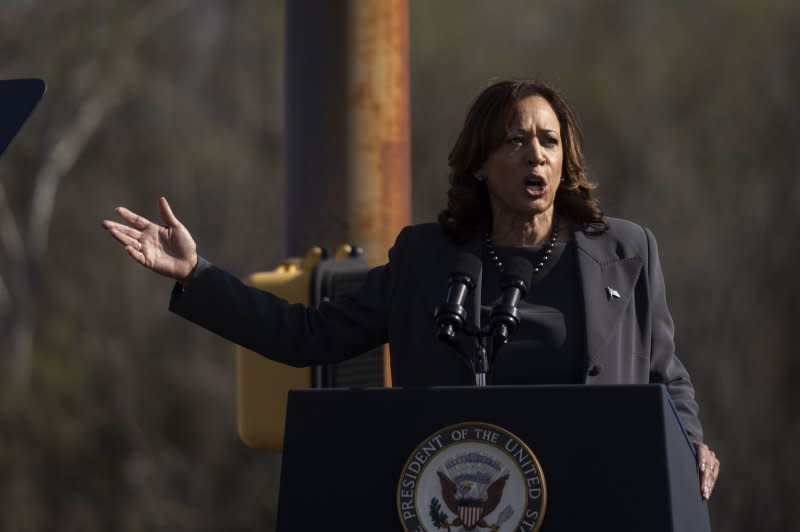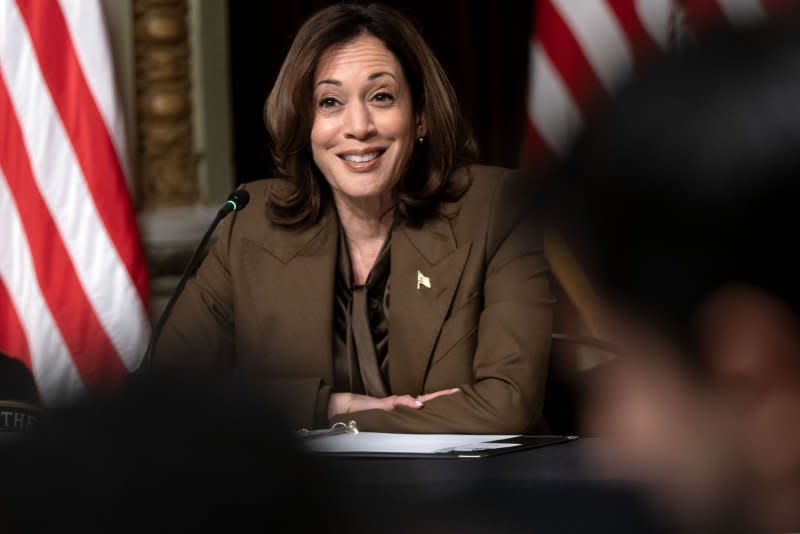Kamala Harris announces final rule setting mandatory staff minimum for nursing homes

April 22 (UPI) -- The White House on Monday announced new rules setting a mandatory minimum for staffing at nursing homes.
Vice President Kamala Harris will travel to Wisconsin to announce the rule requiring that all nursing homes currently receiving Medicare and Medicaid funds need to have a total staffing level at 3.48 hours per resident, mandating every facility with 100 residents needs a minimum of two or three registered nurses -- plus 10 or more nurse aids and two nursing staffers -- to now be compliant.
The rule will also require that facilities have a registered nurse who can provide skilled nursing care onsite for 24 hours each day of the week.
"This rule will not only benefit residents and their families, it will also ensure that workers aren't stretched too thin by having inadequate staff on site, which is currently a common reason for worker burnout and turnover," the White House said.
The White House said Medicare and Medicaid "pay billions of dollars per year" to ensure nursing home care for 1.2 million American citizens, "yet too many nursing homes chronically understaff their facilities, leading to sub-standard or unsafe care."

They added how people of color -- particularly Black women -- are disproportionately impacted in the United States' nursing home workforce.
The administration first attempted to impose very similar rules at the end of last year after receiving pushback from a bipartisan group of lawmakers, who claimed that the requirements might result in limited access to senior care for facilities that are already struggling.
These new healthcare policies announced by Harris specifically take into account the disparities faced in rural communities throughout the United States as healthcare facilities continue to disappear in a decades-long decay of healthcare in rural America, the White House said.
A new investigation warned that the need for at-home care has vastly outpaced a much smaller growth in the pool of home care workers, while a recent report similarly talked of how staffing shortages and poor infection control still plague nursing homes across the United States, and has continued since the pandemic.
A second rule finalized Monday aims to improve access to home care, while addressing turnover in home healthcare jobs, for more than seven million seniors and differently-abled Americans who rely on longer-term care.
Specifically, the new Biden rule seeks better compensation for home care workers by requiring that at least 80 percent of Medicaid payments for home care services go to workers' wages, which the federal government hopes will reduce turnover and improve quality of care.
It will require states "to be more transparent in how much they pay for home care services and how they set those rates, increasing the accountability for home care providers."
The states, it says, must create a "home care rate-setting advisory group" comprised of key stakeholders "to advise and consult on provider payment rates and direct compensation for direct care workers."
The new rules will be implemented in phases to ensure facilities have time to properly adjust to the new staffing requirements, with longer timeframes in rural communities with other limited exemptions, according to the White House.
Home care "is still very inaccessible for many Medicaid enrollees," with more than three quarters of home care providers not accepting new clients, which the Biden White House said leaves "hundreds of thousands of older Americans and Americans with disabilities on waiting lists or struggling to afford the care they need."
An April 2023 study demonstrated how particularly healthcare workers in the United States were facing rising levels of burnout and harassment as a result of the "great resignation" which also stemmed from the pandemic.

